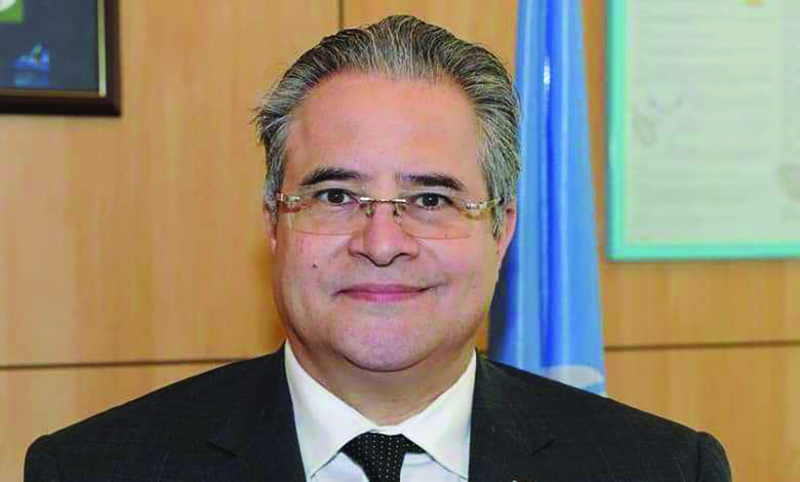
KUWAIT: Every year on 16 October, the world celebrates World Food Day, and this year it marks the 75th anniversary of the Food and Agriculture Organization (FAO). This year, on October 24, the United Nations also celebrates its 75th Anniversary. Therefore, the World Food Day is an occasion to recognize the contributions of the United Nations in general. The FAO75 and UN75 anniversaries come during a very exceptional time as many countries are dealing with the widespread effects of the COVID-19 global health crisis. The global pandemic has been a time to reflect on our health and our most basic, everyday needs: undoubtedly food is one of them.
Food is the essence of life and bedrock of cultures and communities. Preserving access to safe and nutritious food is and will continue to be an essential part of the response to the COVID-19 pandemic. Resilient, inclusive and sustainable food systems are key to ensure a world with "Zero Hunger." Even before COVID-19 hit, estimates were that about 690 million people are hungry. Over 2 billion people do not have regular access to safe, nutritious and sufficient food.
Economic disruption linked to the pandemic may add another 130 million. At the same time, unhealthy diets and sedentary lifestyles have led to soaring overweight and obesity rates, not only in the developed counties, but also in low-income countries, where hunger and obesity coexist.
Today, the world produces more than enough food to feed everyone. However, food systems in recent decades are out of balance. Hunger, obesity, environmental degradation, loss of agro-biological diversity, food loss and waste are only some of the issues that underline this imbalance. Given exponential dynamics of COVID-19, the supply chain is critical to getting goods and services quickly, safely and securely. Business leaders must make rapid decisions and take immediate actions to sustain business operations to serve their customers, clients and communities, as well as protect and support their workers.
"The supply chain sustainability is a particularly essential for Kuwait as its economy is highly vulnerable to the global and regional value chain, with more than 80 percent of goods exported to and imported from outside the region and in fact as a net importer when oil related exports are excluded," highlighted Dr Tarek El-Sheikh, the Representative of the United Nations Secretary-General and Resident Coordinator to the State of Kuwait.
"Kuwait displayed a high level of competence in its emergency planning and implementation, as we all witnessed the great potential and the corporate-level financial resiliency which was placed at the center of the plan. The pandemic has seriously enlightened the need to invest in the local agri-enterprises and strengthen their ability to build back better. Especially small businesses comprised of farm enterprises, traders, food manufacturers, distributors and retailers across food chains.
In a moment like this, it is more important than ever for the government authorities to recognize the need to support our food heroes - farmers and workers throughout the food system - who are making sure that food makes its way from farm to fork and the critical role that these companies can play in maintaining functioning food systems even amid disruptions as unprecedented as the current COVID-19 crisis," Dr El-Sheikh added.
In this context, there is a pressing need for the government and businesses to build long term resilience in their value chains for managing future challenges with effective supply chain strategy for planning, execution and monitoring. This requires holistic approaches to manage the broken supply chain by building in enough flexibility to protect against future disruptions. The Supply-Chain Response Plan in COVID-19 setting is a must in this regard. The planning priorities should include developing a resilience plan and supply chain strategy and sensitizing and analyzing risks to supply chain scenarios.
Dino Francescutti, FAO Sub-regional Coordinator for the GCC States and Yemen stated that Kuwait is defining short to long-term goals for the food and agricultural sector. The country requires a robust strategic plan to transform its food systems to achieve food security and stable food supply chain. FAO and the UN in general stand ready to support Kuwait authorities to develop and implement such a strategic plan.
"FAO and Kuwait's partnership aims at reinforcing the interaction and synergies between the different parties towards achieving the Sustainable Development Goals in Kuwait and other countries of the Near East" Kayan Jaff, Coordinator of FAO-Kuwait Partnership Program and Senior Policy Advisor in the Regional Office in Cairo stated.










